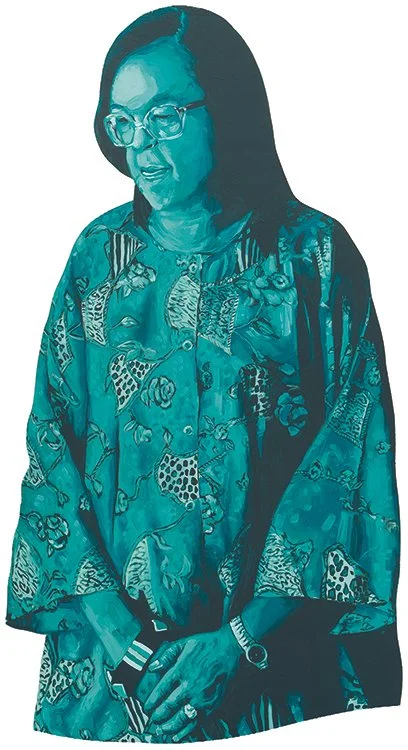Eddie Fay Gates by Alexander Tamahn. Oil on Panel.
Eddie Faye Gates (Petit) was born in Preston, Oklahoma on February 5, 1934. She was the second child born to Vivian and Ferman Petit, both sharecroppers. Just three generations removed from enslavement, Gates’s paternal grandparents migrated from Texas to Indian Territory just years shy of the territory entering statehood and her maternal grandparents moved to the young state just a decade after. Of the move, in her autobiography Miz Lucy’s Cookies: And Other Links in my Black Family Support System, she says, “They had been told that Indian Territory was heaven on earth; it wasn’t, but it was better than Texas.”
Eddie Faye was admitted to the renowned Historically Black College, Tuskegee Institute (now University) in Tuskegee, Alabama where she flourished under the tutelage of her professors and mentors. One of her sociology teachers inspired her “to become an activist for life,” and the trajectory of her life and her career is evidence that she took this statement literally. While attending Tuskegee, she met her future husband, Norman Gates, and upon completion of his degree they married just one year shy of Gates completing her degree at Tuskegee.
She completed her degree at the University of North Dakota where she graduated magna cum laude and went on to obtain a Master’s of Art degree in History from the University of Tulsa. Gates began teaching at Edison High School where she spent 22 years in the classroom and another two year in Administration for Tulsa Public Schools. Gates is the author of three books, countless editorials, and articles related to causes she cared deeply about, though it was her research on the transatlantic slave trade while in England and the Holocaust while in Poland and Israel that would powerfully shape her understanding of the 1921 Tulsa Race Massacre. She served on the Oklahoma Commission to Study the Tulsa Race Riot of 1921 where she worked tirelessly to capture oral histories from survivors of the massacre in an effort to see reparations on their behalf. Her archive of these interviews and more are part of the Eddie Faye Gates Tulsa Race Massacre Collection housed at the Helmerich Center for American Research.
